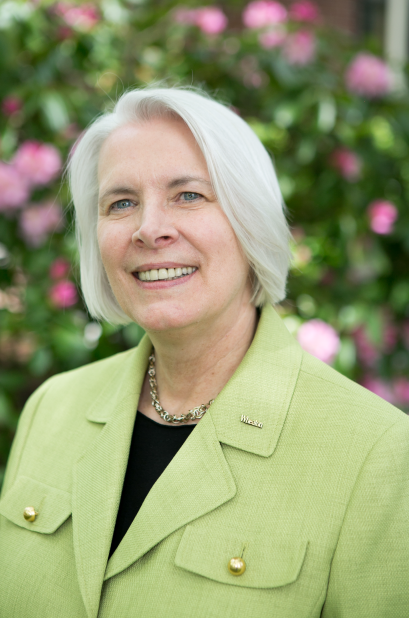On Sept. 16, President Dennis Hanno sent out an email informing the Wheaton community that Provost Linda Eisenmann would serve as provost until June 30, 2016 and following a sabbatical, would assume a faculty position at the start of the 2017-18 school year. Eisenmann, a professor of history and education, is interested in the social context of higher education.
In regards to her time as provost, Eisenmann said, “Some of the accomplishments over the last six years are ones that will have a long impact on the college. The biggest is the completion of the Mars Center for Science and Technology, a project that had stalled in the year before I arrived…we also enlarged and shifted the curriculum in ways that are serving students well (such as by creating) new majors in Business and Management, and in Film and New Media Studies.”
Hanno wrote that with Eisenmann’s active encouragement, “The college has introduced a number of new majors and academic programs that reflect Wheaton’s growing exploration of interdisciplinary study. She also has helped to secure approximately $1.3 million in external institutional grants that supported faculty as well as the launch of new programs, and instituted a new Supplemental Fund to support faculty research.”
Eisenmann said, “I’ve been able to hire great new faculty to support these areas and our other longstanding programs. We inaugurated our study abroad program in Bhutan and watched it grow over the last several years. Just in the last year, I’ve brought new leadership into several of the academic support areas, including the Global Center, Academic Advising, Institutional Research, and the Registrar.”
This decision to step down has been a personal one. “I had 15 great years as a faculty member before I shifted into full-time administration, and I’m really missing the chance to be in the classroom more often and to pursue my research more regularly. You never stop being a faculty member just because you’re the Chief Academic Officer, but you don’t get to use those scholarly skills or work with students very directly,” Eisenmann said.
Hanno went on to say, “The timing of Linda’s decision at this early stage in the academic year positions the college well to recruit her successor. I met yesterday with the Provost Advisory and Advisory committees of the faculty for consultation on organizing the search process for a new provost.”
Eisenmann said that as the outgoing Provost, she would not participate directly in the recruitment of her successor. She said that some of the challenges of this position had to do with the difficult external environment for higher education and the economy overall. She said, “(It’s) a really hard part of this job, trying to keep people’s creativity going when you can’t always bring ideas easily to fruition.”
A successor, Eisenmann said, would need two strong sets of skills. “First, the person must be an experienced faculty member, who is a strong scholar and an excellent teacher. As leader of the faculty, the Provost has to understand what faculty life is like, be able to support her colleagues, and help sustain a curriculum that serves students well.”
“Second, the person has to have strong administrative skills, since he or she will be managing a large budget and overseeing not just the faculty but also the eight different administrative offices that report to the Provost,”
Eisenmann said, “On top of that, the Provost needs to collaborate with the President and the other Vice Presidents on strategic decision-making for the college.”
Finally, Eisenmann advised the new provost to come with a lot of energy as, “Wheaton is an exciting and busy place, and if the person comes from outside the college, she or he will need to get to know dozens of faculty and staff as soon as possible, and hundreds of students.
At the same time, a new person needs to take enough time to learn the Wheaton culture before rushing in with changes in mind…(the person needs to) be a good listener, ask lots of questions, and find ways to quickly become a part of this great campus.”
